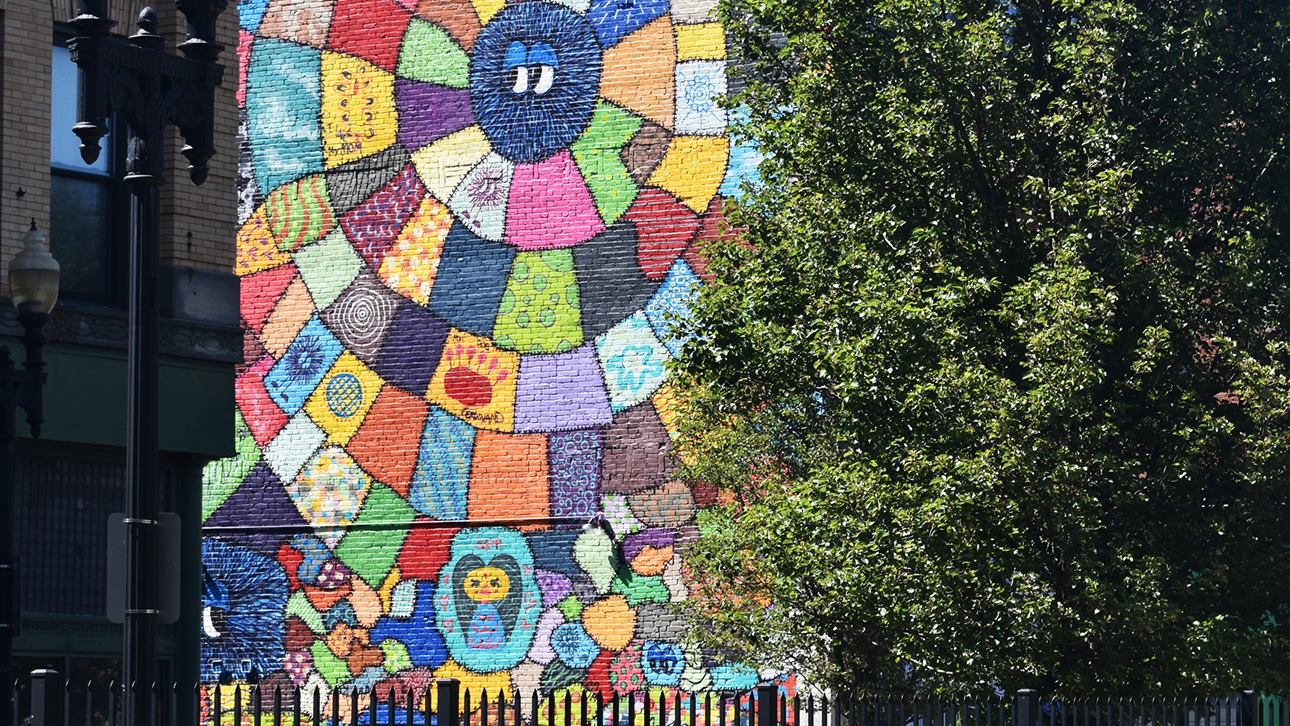Foundation launches pilot initiative to support vibrant and equitable public spaces
Leaders from eight Greater Boston organizations comprise first-ever cohort for Place Leadership Network
July 15, 2019
Boston – The Boston Foundation today announced that eight Greater Boston organizations have been selected as the first cohort of the Place Leadership Network, an innovative program that supports the design and stewardship of vibrant public spaces. The network brings together leaders of place-based organizations for peer learning, leadership development, and access to resources and expertise.
“The Place Leadership Network represents a significant and worthwhile investment by the Boston Foundation in the organizations that steward our precious public assets,” said Paul S. Grogan, President and CEO of the Boston Foundation, as the grantees were announced. “They come from across Greater Boston, and offer many different approaches to create vibrant, culturally-rich, diverse public spaces, but together, these organizations provide a robust roadmap for how we can best use our public space. We are excited to help them create a strong network for idea sharing and skills development.”
The 2019-2020 cohort includes:
Asian Community Development Corporation, seeking to strengthen and extend Chinatown's cultural identity through a mural and plaza intervention.
Bowdoin Geneva Main Streets, Cape Verdean Community of Boston and Meetinghouse Hill Civic Association, seeking to invest in economic self-sufficiency by transforming 20 vacant parcels into micro-enterprises.
Central Square Business Improvement District, with the Dance Complex and Cambridge Arts Center, seeking a strategy to retain and expand spaces for creative expression.
Charles River Conservancy, with the Esplanade Association, seeking to collaborate more closely and effectively on inclusive programming that extends the reach of both organizations.
Hyde Square Task Force, seeking to engage young people of Boston's Latin Quarter in the design and animation of the community's public spaces.
North Shore Community Development Corporation, seeking to evaluate and replicate the impact of its murals program on the quality of life of low-income housing residents.
Roxbury Cultural District, seeking to advance residents' interests in negotiating for developer Community Benefits Agreements.
The Trustees of Reservations, seeking to integrate creative and cultural uses into its urban agricultural network of 56 community gardens throughout Boston.
The eight organizations were chosen from 37 applicants by a selection panel of municipal, design, arts, and community development experts, who looked to assemble a cohort that represents the most promising approaches to managing urban change in the public interest.
"Greater Boston has a wide diversity of public places where distinctive identities welcome cultural expression, assist economic development, and help build communities. Bringing together varying place-making viewpoints will support how we learn from and enhance our communities' strengths,” said Dr. Ted Landsmark, Director of the Dukakis Center for Urban Policy at Northeastern and a member of the selection panel.
Beginning in August, teams of leaders from each organization will come together to take part in a series of learning modules, themed around a critical element of place management, such as planning and zoning, tactical urbanism, fundraising, and working with creative producers. The approach will emphasize peer-to-peer learning while also connecting participants to regional and national resources, such as the Harvard Graduate School of Design, City Parks Alliance, International Downtown Association, Enterprise Community Partners, and others. . All participants will be compensated for their, and dedicated funding will be available at the conclusion of the nine-month cycle.
“At a moment when the Boston region is challenged by real estate pressures, rising tides, and growing inequality, this group of urban agents are the key to ensuring that community spaces remain vibrant and inclusive.” said F. Philip Barash, Design Fellow at the Boston Foundation, who is overseeing the Network. “They represent Caribbean communities and Chinese immigrants; subsistence gardeners and small business owners; low-income housing advocates and open space champions; elders and teens; mature institutions and emerging risk-takers; murals in Salem, libraries in Hyde Square, sidewalks in Cambridge, plazas in Chinatown -- the places that, in a fragmented city, bring us powerfully together.”
2019 Place Leadership Network selection panel
Ted Landsmark, Director, Dukakis Center for Urban Policy at NortheasternLuis Cotto, Cultural Districts Program Manager, Massachusetts Cultural Council
Jennifer Effron, Policy Director, Boston Society of Architects
Jay Lee, Assistant Director of Design Construction Openspace, City of Boston Department of Neighborhood Development
Brad Barnett, Co-Director, Sasaki Strategies
Carrie Niemy, Program Director, Design Initiatives at Enterprise Community Partners
Stephen Gray, Assistant Professor of Urban Design, Harvard Univ. Graduate School of Design
Jacob Wessel, Public Realm Director, City of Boston
Giles Li, Executive Director, Boston Chinatown Neighborhood Center
Sam Aquillano, Executive Director, Design Museum Boston

